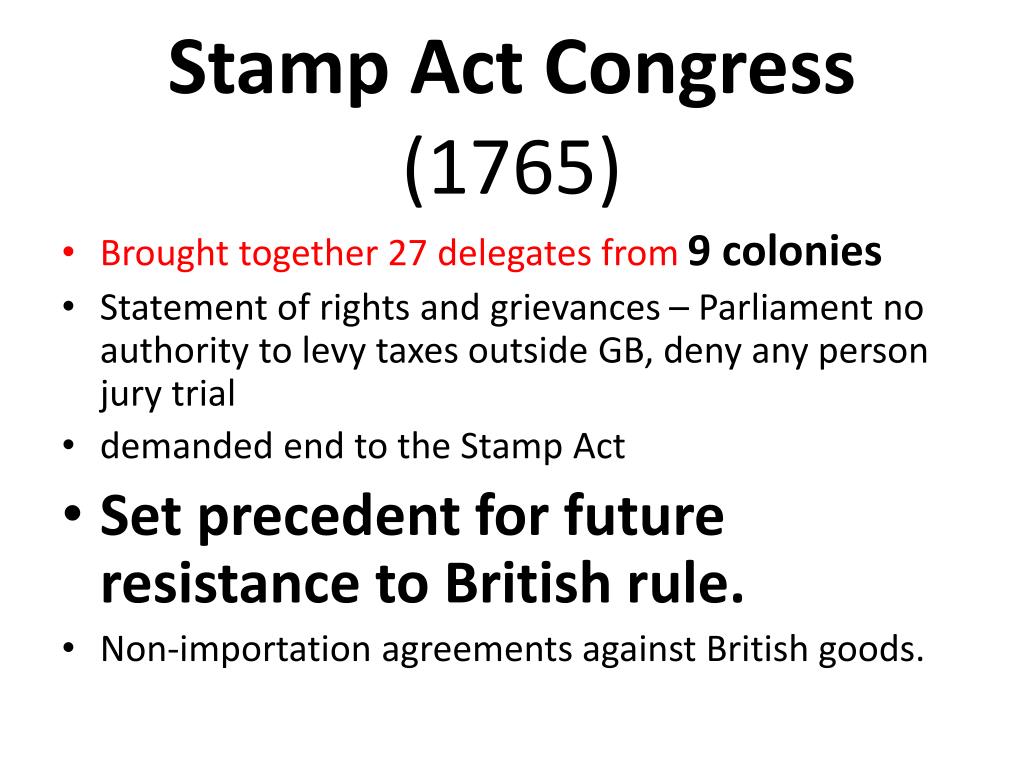

Chairman Timothy Ruggles of Massachusetts and Ogden of New Jersey refused to sign for personal political reasons. The delegations from Connecticut and South Carolina were specifically forbidden by their colonial assemblies from doing so, and the New York delegates had been chosen by the New York City Committee of Correspondence rather than the colonial assembly and so did not consider themselves empowered to do so. Not all the delegates were prepared to sign the Declaration and the other documents. The Declaration held that only elected assemblies had the right under the British Constitution to levy taxes, and thus only the several colonial assemblies could levy taxes on the American colonists. The Declaration of Rights and Grievances stated that while the colonists owed Parliament "all due subordination," it denied that that subordination included the requirement to submit to Parliamentary taxation. The three documents directed to the British government were rejected by their intended recipients. One was a Declaration of Rights and Grievances directed at the people of the American colonies one was an address to King George III one was a memorial to the House of Lords and one was a petition to the House of Commons. In the course of its meetings between 7 and 25 October, the Stamp Act Congress drafted four documents. Only eight of the thirteen sent delegations to the Congress opposition to the Stamp Act was too feeble in Nova Scotia, and the Royal Governors of four other colonies prevented their legislatures from meeting to select delegates. The Stamp Act Congress had its origin in a circular letter sent by the Massachusetts Assembly to the colonial legislatures of thirteen other British colonies in North America. Sobel also states that the seeds of future political alignments in the American Crisis could be seen in the Congress, with James Otis of Massachusetts and Thomas Lynch of South Carolina representing the radicals, Robert Ogden of New Jersey representing the conservatives, and John Dickinson of Pennsylvania representing the moderates. Sobel ascribes the opposition to the Stamp Act to a conspiracy involving antigovernment radicals in London, Boston, and Charleston. The Stamp Act was the first direct tax to be imposed on the American colonies, and as such produced almost universal opposition from the colonists.

The Stamp Act Congress was a meeting of delegates in New York City from nine American colonies in October 1765 intended to coordinate a response to passage of the Stamp Act by the Parliament of Great Britain.


 0 kommentar(er)
0 kommentar(er)
